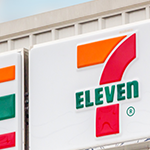By Peter Karcher and Julian Pipolo In an ideal world, all contracts take the form of a single document signed by all parties concerned with little fuss. If a dispute ever arises, the parties could simply revert back to that initial document and figure out what they...
New FIRB Rules for Agricultural Land Acquisitions by Foreign Interests
By Tim Ferrier, Consultant and Karissa Andrejic, Associate THE FEDERAL GOVERNMENT ANNOUNCES NEW FIRB ASSESSMENTS RULES On 1 February 2018 the Federal Government announced it will be introducing new rules in cases where the Foreign Investment Review Board (“FIRB”)...
The New Digital Era: Blockchain, Cryptocurrency, and ICOs – Part 2
By Brad Vinning and Ruby Mackenzie-Harris WHAT IS CRYPTOCURRENCY USED FOR? There are plenty of uses of cryptocurrencies, many of which have nothing to do with the sordid affairs of the dark web. Cryptocurrency can be used for purchases in the real world, as a...
The New Digital Era: Blockchain, Cryptocurrency, and ICOs – Part 1
By Brad Vinning and Ruby Mackenzie-Harris Now that cryptocurrency mania is all over social media, and even entering mainstream media content, most people will have heard of “Bitcoin”. Bitcoin is a form of “cryptocurrency”, an entirely digital form of currency the...
Codes, cut-offs and curtains: Major developments in Industrial Relations in the Building and Construction Industry in 2017
Building and construction industry industrial relations have experienced tumultuous events this year. Employers have witnessed the first anniversary of the commencement of the Code for the Tendering and Performance of Building Work 2016 (Code 2016), the revival of the...
Navigating the new industrial manslaughter laws
The new and very serious offence of “Industrial Manslaughter” was introduced to Queensland on 23 October 2017, when the Queensland Parliament passed the Work Health and Safety and Other Legislation Amendment Act 2017 (“Act”). The Act represents the Palaszczuk...
New reforms to the Fair Work Act
The Fair Work Amendment (Protecting Vulnerable Workers) Act 2017 (Cth) (‘the Act’) makes significant changes to the Fair Work Act 2009 (Cth). These legislative changes apply to all employers, companies and employees covered by the Fair Work Act, including certain...
Unlawful discrimination in the workplace – Employers’ exposure widens
To create an environment free from unlawful discrimination, bullying and harassment, employers know they should be prepared to recognise and prevent conduct which might give rise to these complaints in the workplace. But what employers need to also know now is that...
Worse than a hangover: The importance of an effective drug and alcohol policy
Over $6 billion dollars per year… This is the cost to Australian employers for lost productivity and sick days attributable to drug an d alcohol use. It is little wonder why safety-critical industries are increasingly committing resources to introduce or improve...
You shall have a pass! FW Act permits required
It has been confirmed that an employer may require a union official to possess an entry permit under the Fair Work Act 2009 (Cth) (FW Act) even when the official has purportedly been invited on site by a safety representative. On 17 November 2017, the High Court...
Does it pay to be a casual?
The Federal Circuit Court has found that truck driver, (Mr. Skene) engaged on a casual basis under an enterprise agreement and who worked regular rosters, was entitled to annual leave under Part 2-2 of the Fair Work Act 2009 (FW Act). The finding of an entitlement to...
Enterprise agreements – the end of an era?
Are enterprise agreements on the way out? The Fair Work Commission’s Annual Report 2016-17 highlighted: Fewer businesses are making enterprise agreements; The FWC are approving fewer enterprise agreements; The number of enterprise agreement applications being...











